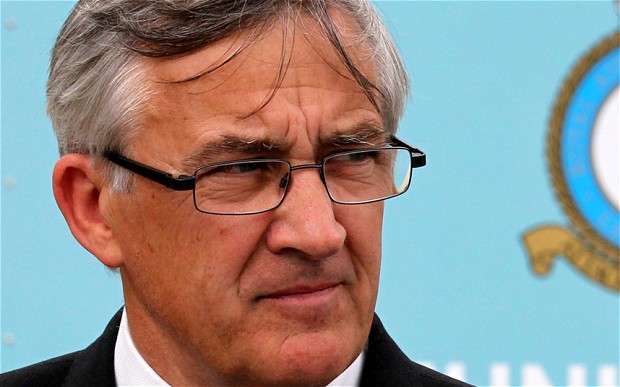British aid billions ‘subsidising’ third world defence budgets
“Research by the House of Commons Library found that defence spending has increased in some of the biggest recipients of British taxpayers’ aid cash”
The billions of pounds of British taxpayers money spent in developing countries is helping to “subsidise” their defence budgets, MPs say.
Research by the House of Commons Library found that defence spending has increased in some of the biggest recipients of British taxpayers’ aid cash.
The cash could have helped at least four developing countries keep their defence budgets above the international benchmark of 2 per cent of gross national income.
Tanzania’s defence budget increased from $330million to $400million between 2013 and 2014. Yet in 2012 – the last year for which figures are available – it received £224million.
Similarly, the Democratic Republic of Congo’s defence budget jumped from $430million to 460million between 2013 and 2014, yet it received £206million in British aid cash.
In another instance Bangladesh’s defence spending went up by $180million to $1.96billion between 2013 and 2014, a year after receiving £260million in British aid money.
India received £292million in 2012 – yet it spent $45billion on defence in 2014. Pakistan also received £189million, yet spent $6.3billion in 2014. The Government is ending direct bilateral aid to India.
The figures come as days after George Osborne, the Chancellor, announced plans to cut £500million from the Armed Forces budget.
Rusi, the respected defence think tank, said it will now be “touch and go” whether Britain meets its Nato obligations. Treasury aides insisted that they would still be met.
• Former Coalition defence minister takes over Margaret Thatcher legacy group to fight defence cuts
Sir Gerald Howarth MP, a former defence minister in the Coalition government who is campaigning against defence cuts, said: “By continuing to provide aid to countries with increasing defence budgets the UK is effectively subsidising their defence budgets whilst we are ramping up overseas aid and cutting our own defence budget. It simply does not make sense.”
Conservative MPs and former senior officers in the Armed Forces are growing increasingly frustrated about the Government’s failure to commit to spending 2 per cent of the country’s GDP on defence.
By continuing to provide aid to countries with increasing defence budgets the UK is effectively subsidising their defence budgets whilst we are ramping up overseas aid and cutting our own defence budget. It simply does not make sense.
In March the House of Lords voted to enshrine in a law a commitment to spending 0.7 per cent of Britain’s annual income on controversial foreign aid programmes.
Conservative MPs have it is “idiotic and unjustifiable” to commit future governments to spending billions of pounds every year on international development programmes.
Philip Davies, the MP for Shipley, said then: “It is idiotic and unjustifiable to be spending more and more money on overseas aid when we are still borrowing so much money and have to make savings at home.”
Government sources pointed out that it was expected that defence spending would increase as developing countries economies improved due to British aid money.
A Department for International Development spokesman said: “Our investment in international development helps create more stable, secure and prosperous countries, which is firmly in Britain’s interest.”
A source added: “Stable countries with functional military are in our interests – take Sierra Leone as an example, where Britain worked hand in hand with the Royal Sierra Leonean Armed Forces to successfully fight Ebola.”
How much the biggest recipients of bilateral British Government aid money received in 2012
India £292m
Ethiopia £266m
Afghanistan £274m
Nigeria £197m
Bangladesh £196m
Pakistan £189m
Tanzania £158m
Democratic Republic of Congo £139m
Turkey £9m
Cote d’Ivoire £47m
… and how much the same countries spent on defence in the following two years, 2013 and 2014
India $42bn (2.2% of GDP) $45bn (2.2% of GDP)
Ethiopia $350m (0.8%) $380m (0.8%)
Afghanistan $2.8bn (13.3%) $3.3bn (15.2%)
Nigeria $2.4bn (0.5%) 2.3bn (0.4%)
Bangladesh $1.7bn (1.1%) $2bn (1.0%)
Pakistan $6bn (2.6%) $6.3bn (2.6%)
Tanzania $330m (1%) $400m (1.1%)
Democratic Republic of Congo $430m (1.4%) 460m (1.4%)
Turkey $10.7bn (1.3%) $10bn (1.2%)
Cote d’Ivoire $780m (2.4%) $810m (2.4%)
Source: House of Commons Library


